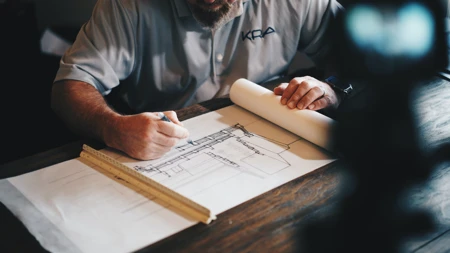We all know how taxing it can be to get a mortgage. And if you’re self-employed, it can appear even more difficult. This doesn’t mean that you won’t be able to get a mortgage if you’re self-employed. It just means that you might have a couple more hoops to jump through than usual.
In this article, we explain exactly what it means to be self-employed, the challenges you might face applying for a mortgage, and we also share some tips to help make getting your mortgage that little bit easier.
How do I know if I’m self-employed?
You will be seen as self-employed by mortgage lenders, if:
- You own 20% or more of a business that’s your main source of income
- You work freelance for different companies
- You’re an independent contractor
How might being self-employed impact my mortgage application?
The biggest consequence of being self-employed means that lenders may view you as a more high-risk borrower than someone who has a permanent job and regular income.
It’s important to understand that this won’t stop you from getting a mortgage, however, it just means you’ll have to provide a lot more paperwork to show your lender that you have enough money to cover, not only your mortgage repayments, but also all your other monthly expenses.
Much in the same way as someone with a permanent job, you’ll be required to provide bank statements, tax forms, and proof of identification when applying for a mortgage.
However, here’s where things differ, but only slightly!. If you’re self-employed, you’ll need to have been trading at least a year, which in the grand scheme of things isn't long at all! You'll just need to provide proof of income over the past year.
By having proof of a steady income over the past year, and even being able to show evidence of upcoming contracts or work, you’ll be more favourable as a low-risk borrower in lenders’ eyes.
How to improve your chances of getting a mortgage
As with any mortgage application, showing lenders that you can handle your money responsibly and keep your affairs in order is important, but it’s perhaps that little bit more important when you’re self-employed.
There are a few things you can do before applying for a mortgage that can make it that bit easier:
- Be money conscious - Lenders will check your bank statements and your credit history to see if you’ll have enough money each month to keep up with repayments. Now this doesn’t mean you can’t treat yourself throughout the month, it just means you should spend your money wisely, making sure you still have disposable income by the end of the month and aren’t taking on any additional debts.
- Save for a deposit - Anyone applying for a mortgage will need a deposit in order to apply, but the bigger deposit you save, the more lenders and mortgage products you’ll have access to. Especially, if you’re self-employed, having a deposit of at least 20% can help show lenders you can be responsible with your money.
- Improve your credit score - Be sure to pay off any debts or outgoings as soon as they come out to avoid later repayments on your credit score. By paying bills on time, it helps show lenders you know how to spend your money wisely.
At the end of the day, getting a mortgage if you’re self-employed isn’t impossible; it just requires a little more work. If you have any questions about applying for a mortgage, or you’re just unsure where to begin, get in touch with one of our advisers who can help you work everything out from start to finish.

